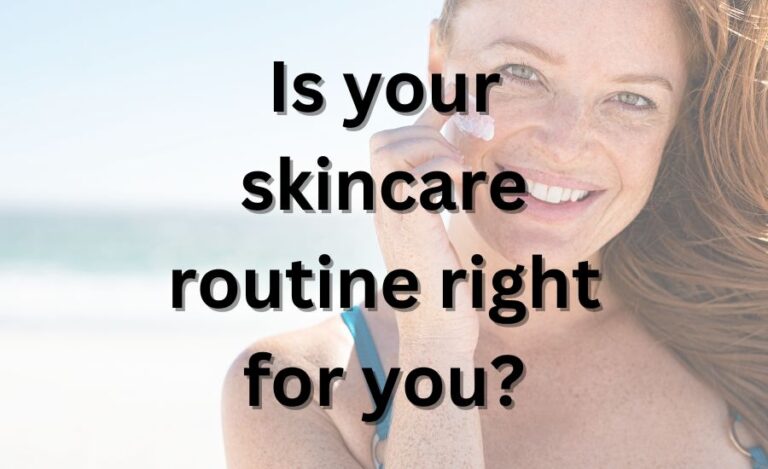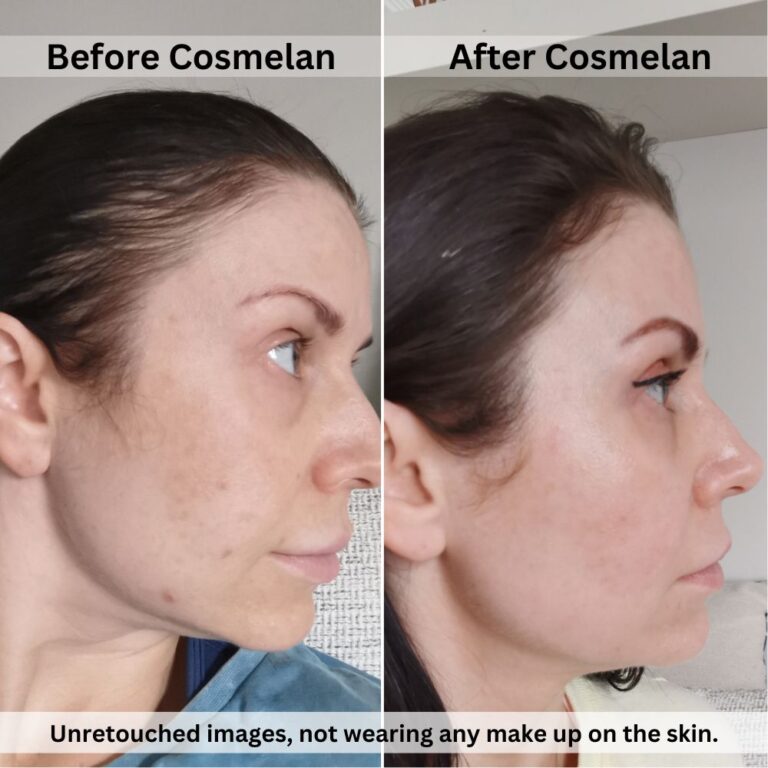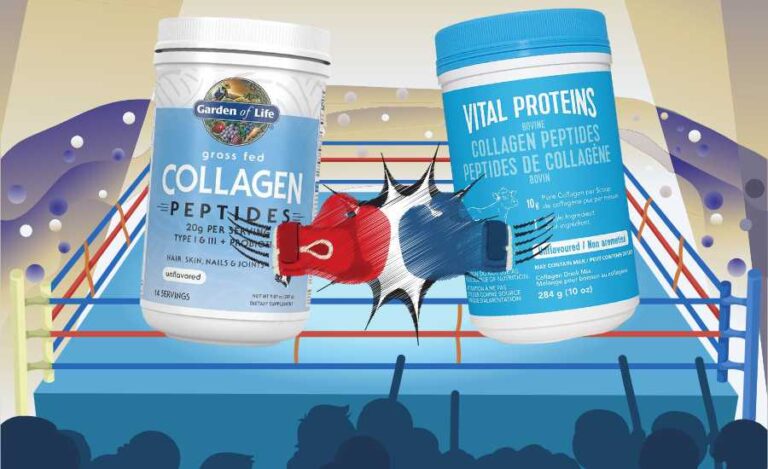It’s no secret that the Australian sun is very harsh on the skin and can make your face age very quickly if you don’t protect it. Choosing a good high-SPF sunscreen is important, especially as our skin matures.
And because most Aussie women are smart and hide their faces from the intense sun, many of us have a fairly pale complexion as a result.
Do you agree that lightly bronzed skin has this healthy glow and looks so nice and fresh? If you do then read on because along with my group of trusted clients, I tried and tested multiple brands of tinted sunscreen for mature skin and I will share them with you below.
Embracing Effortless Skin Care With Tinted Sunscreen for Mature Skin.
As we gracefully move through our 30s and beyond, prioritizing skin protection becomes paramount. That’s where tinted sunscreen steps in as a hero, making the process simpler and more enjoyable.
But this is not all, for me another important criterion was to find tinted sunscreen that is natural, chemical-free, and cruelty-free. So the brands I recommend it this review are exactly that. I don’t know about you, but I don’t like slathering chemicals on my face daily, so I am very fussy in that regard. Let’s see what tinted sunscreen brands made it to the top 3.
In a humid environment, I was looking for something that doesn’t feel greasy or heavy, but something that is long-lasting and doesn’t require frequent reapplication throughout the day. I tried some not-so-great brands and some of them ended up patchy due to the brown tint being too dark in the sunscreen. But out of many I have tried over the years, I have found a few tinted sunscreens that I can comfortably recommend.
My criteria for a good tinted sunscreen for mature skin is:
- Has to be as natural as possible with mineral formulas.
- Has a broad-spectrum SPF.
- Matte finish or not very greasy or heavy, lightweight coverage.
- No chemical sunscreens.
- Subtle tint, but enough to give a healthy-looking glow with a natural finish.
- Water resistant.
- Ideally has a good shade range so I can select a perfect match for different times of the year.
Here are my top 3 choices of tinted sunscreen for mature skin.

Cabana Glow SPF50 is a Mineral Glow Serum Drops containing Pink Algae, Hyaluronic Acid, and Rosella Extract to help promote hydration and elasticity which is particularly important for mature skin.
It also has a very light feel and doesn’t leave a greasy residue hours later. The drawback is that many products sell out quickly so you need to stay on top of their emails to make sure you are notified when the products are back in stock and they are only available on their website.

This light feel and nongreasy formula goes on like a light lotion but has SPF50+ is another fantastic natural brand that is very affordable and fantastic for daily use. However, it only comes in 3 different shades, light, medium and tan. So if you have very dark skin Ultra Violette is a better fit for you.

This tinted sunscreen is lightweight and not greasy although it has very high SPF50 protection. It comes in 15 different shades from very fair with either pinky or more yellow undertones, and to a very dark brown. I have not come across another brand yet that has catered to so many skin tones, this is why I put it first on my list. They are fragrance and alcohol-free and vegan.
I know some of you might ask ‘If I already have a dark complexion then why would I need a tint in my sunscreen’? Well, the thing is that this sunscreen helps create that dewy smooth finish, similar to foundation, but it’s not as thick and heavy. So if you have a bit of uneven or patchy skin tone, this product is something in between sunscreen and light coverage to help smooth out the uneven patches and pigmentation. I know this is what my darker-skinned clients use it for. Protection and smooth appearance in one easy step.
FAQs:
Is tinted sunscreen as good as sunscreen?
The best part of tinted sunscreen is that it provides the same protection from sun damage as regular sunscreen, but also ads that dewy finish and sheer tint look to help you achieve natural glow. It makes it a great option for those who don’t have time to apply bronzer or makeup on top of their regular sunscreen. A good tinted moisturiser is broad spectrum just like sunscreen and provides sheer coverage for dry skin or even oily skin types.
Can tinted sunscreen replace foundation?
If you wore foundation in the past and have some sneaky wrinkles around the eye area or even the forehead, then you probably noticed that foundation can get into the fine lines after a few hours of wear. Thich only highlights the wrinkles even more. Tinted sunscreen is often a more lightweight formula than most foundations so it will look more similar to a BB cream finish and blend into the skin more naturally, so it’s perfect for a very natural look.
Additionally, tinted sunscreen for mature skin makes it simple to reapply because you don’t have makeup on top of it, which means you can keep topping it up with ease if you spend a lot of time outdoors, exercising, or swimming. Usually, it is recommended to top up your sunscreen every 2-3 hours if you are sweating a lot or in the water.
Can you use tinted sunscreen every day?
Yes, absolutely especially if it’s mineral based and doesn’t contain chemicals. If you go outside even just for a short time, even as little as 5 minutes, it’s very important to protect your skin. If you need vitamin D then it’s best to receive it by exposing your back, arms, legs, and chest to the sun early in the morning approximately before 9 am., or later afternoon after 4 pm, and no longer than 20 minutes without sunscreen. Dermatologists don’t advise exposing your face to the sun at any point if you want to prevent rapid aging.
Is tinted sunscreen the same as BB cream?
Tinted sunscreen takes the lead in sun protection, blending UV-blocking elements with a sheer tint for a lightweight, natural finish and even skin tone. It’s designed primarily to shield your skin from harmful UV rays while providing subtle coverage. On the other hand, BB cream offers a range of skincare and makeup benefits, including moisturizing, priming, and light coverage. Although some BB creams do contain SPF, it’s usually lower than dedicated sunscreens. For robust sun protection, it’s recommended to use tinted sunscreen that contains at least SPF 50+. If you’re prioritizing sun protection, tinted sunscreen is your go-to, offering a dedicated shield against UV damage.
What is the disadvantage of tinted sunscreen?
Although tinted sunscreen can provide some healthy glow and protection at the same time, if you have a lot of strong pigmentation or skin discoloration it may not be sufficient enough to even out your skin tone as it doesn’t have quite the same coverage effect as proper foundation. So if you have some scars or patchy areas on the skin you may also need to add a bit of concealer to those areas.
Tinted sunscreen also may not be the best solution for dark under-eye circles as it’s usually not designed to conceal strong dark-colored patches of skin, so you may need to add a little light under-eye concealer to help you with that. I often love to add a tiny bit of Innoxa under eye dark circle concealer after I apply my tinted sunscreen for mature skin.
Does tinted sunscreen look like makeup?
Not really, it actually creates a more natural skin-like look rather than a foundation look. But it also depends on the brand, some will have a higher coverage and others a more sheer look. Ultra Violette brand tends to have the strongest concealing effect for patchy skin. Whilst Nation is the least concealing in my opinion.
What is the difference between Natural Mineral Sunscreen vs. Chemical Sunscreen?
Active Ingredients:
- Natural Mineral Sunscreen: This type of sunscreen uses physical blockers like zinc oxide and titanium dioxide. These minerals sit on top of the skin and reflect UV rays away from the skin.
- Chemical Sunscreen: Chemical sunscreens contain organic compounds such as avobenzone, oxybenzone, and octisalate. These compounds absorb UV rays, convert them into heat, and then release that heat from the skin.
Effect on Skin:
- Natural Mineral Sunscreen: Suitable for sensitive skin as it tends to be less irritating. The minerals create a barrier, making it less likely to cause skin reactions.
- Chemical Sunscreen: May contain ingredients that could potentially cause skin irritation or allergic reactions in some individuals.
Protection Range:
- Natural Mineral Sunscreen: Provides broad-spectrum protection against UVA and UVB rays.
- Chemical Sunscreen: Depending on the specific chemical compounds, protection may be limited to either UVA or UVB rays. Some chemical sunscreens offer broad-spectrum protection.
Environmental Impact:
- Natural Mineral Sunscreen: Generally considered environmentally friendly, as minerals like zinc oxide are not harmful to marine life or coral reefs.
- Chemical Sunscreen: Some chemical compounds, like oxybenzone and octinoxate, have been linked to coral reef bleaching and may be harmful to marine ecosystems.
Application Time:
- Natural Mineral Sunscreen: Effective as soon as it’s applied, no waiting time needed.
- Chemical Sunscreen: Needs approximately 20-30 minutes to be absorbed into the skin before it can provide full protection.
Residue and Appearance:
- Natural Mineral Sunscreen: Can leave a slight white cast on the skin due to the minerals, not the case for tinted varieties.
- Chemical Sunscreen: Tends to be more transparent on the skin, leaving no visible residue.
Stability and Longevity:
- Natural Mineral Sunscreen: Generally more stable and less likely to degrade in sunlight, offering longer-lasting protection.
- Chemical Sunscreen: Some chemical filters may degrade over time with exposure to sunlight, potentially requiring more frequent reapplication.
Preserving Collagen and Elastin with Hyaluronic Acid.
Collagen and elastin, the dynamic duo responsible for skin’s firmness and elasticity, are vulnerable to UV-induced damage. Sunscreen, enriched with hyaluronic acid, plays a pivotal role in preserving these essential proteins. By shielding against the onslaught of UV rays, sunscreen helps maintain the integrity of collagen and elastin fibers, thereby keeping your skin supple, plump, and resistant to sagging.
A Lasting Investment in Youthful Radiance with Antioxidants
While the effects of a consistent sunscreen regimen may not be immediately apparent, they are undeniably profound. Fewer fine lines, diminished hyperpigmentation, and a more even skin tone become the hallmark of your dedication. By embracing sunscreen enriched with antioxidants like vitamin E and vitamin C as a non-negotiable component of your skincare routine, you’re making a timeless investment in your skin’s youthful radiance.
Pigmentation and Dark Spots and Free Radical Damage.
Protecting your skin from skin cancer is the most important thing, however, sun can create unwanted dark patches in your skin color, defending your skin daily from the sun you can dramatically reduce the appearance of these spots and discolouration.
Conclusion: A Celebration of Radiant Skin.
Remember, taking care of your skin is an act of self-love. With tinted sunscreen, you’re not just protecting yourself from the harmful rays, but you’re also enhancing your natural beauty in the process. Here’s to healthy, radiant skin!





